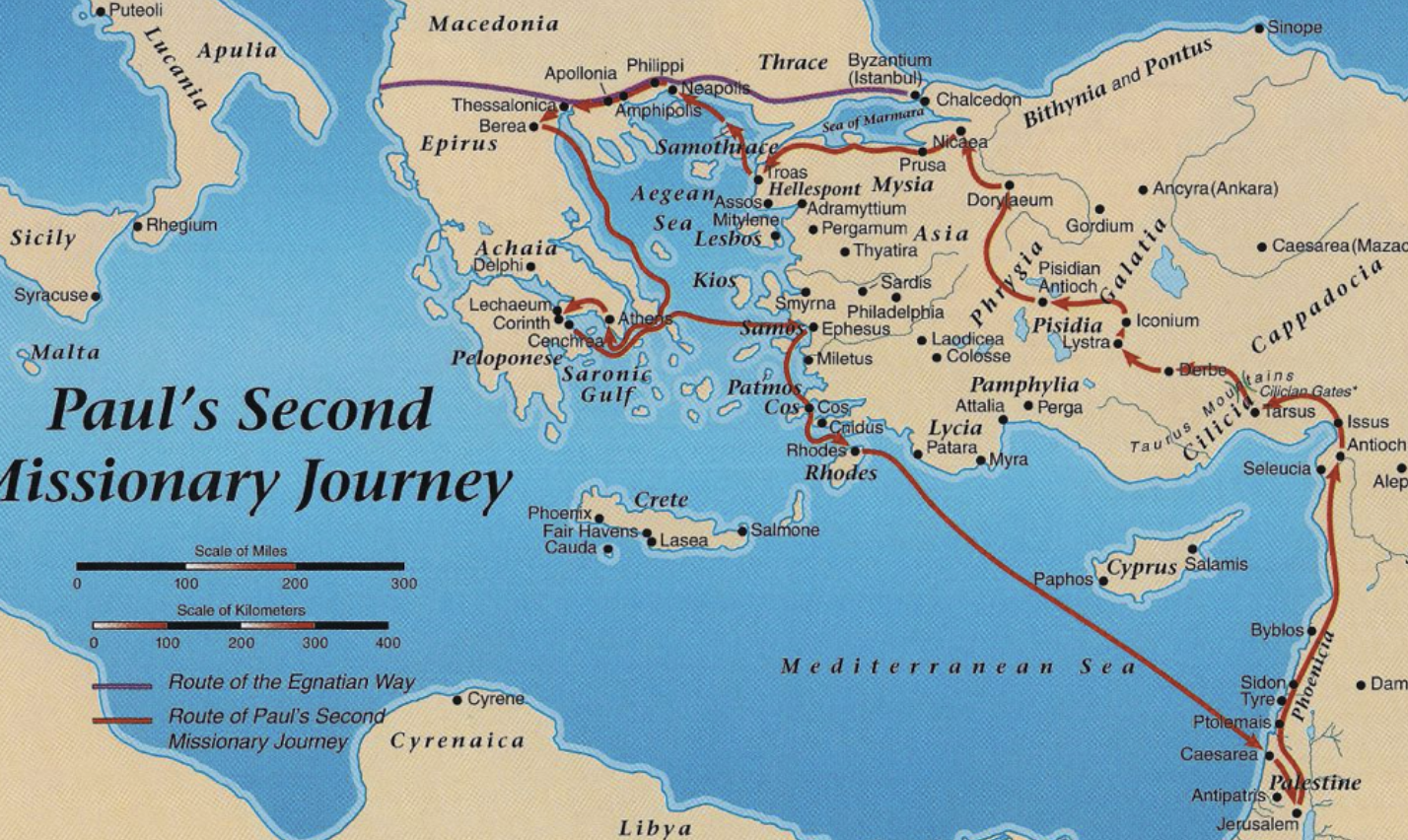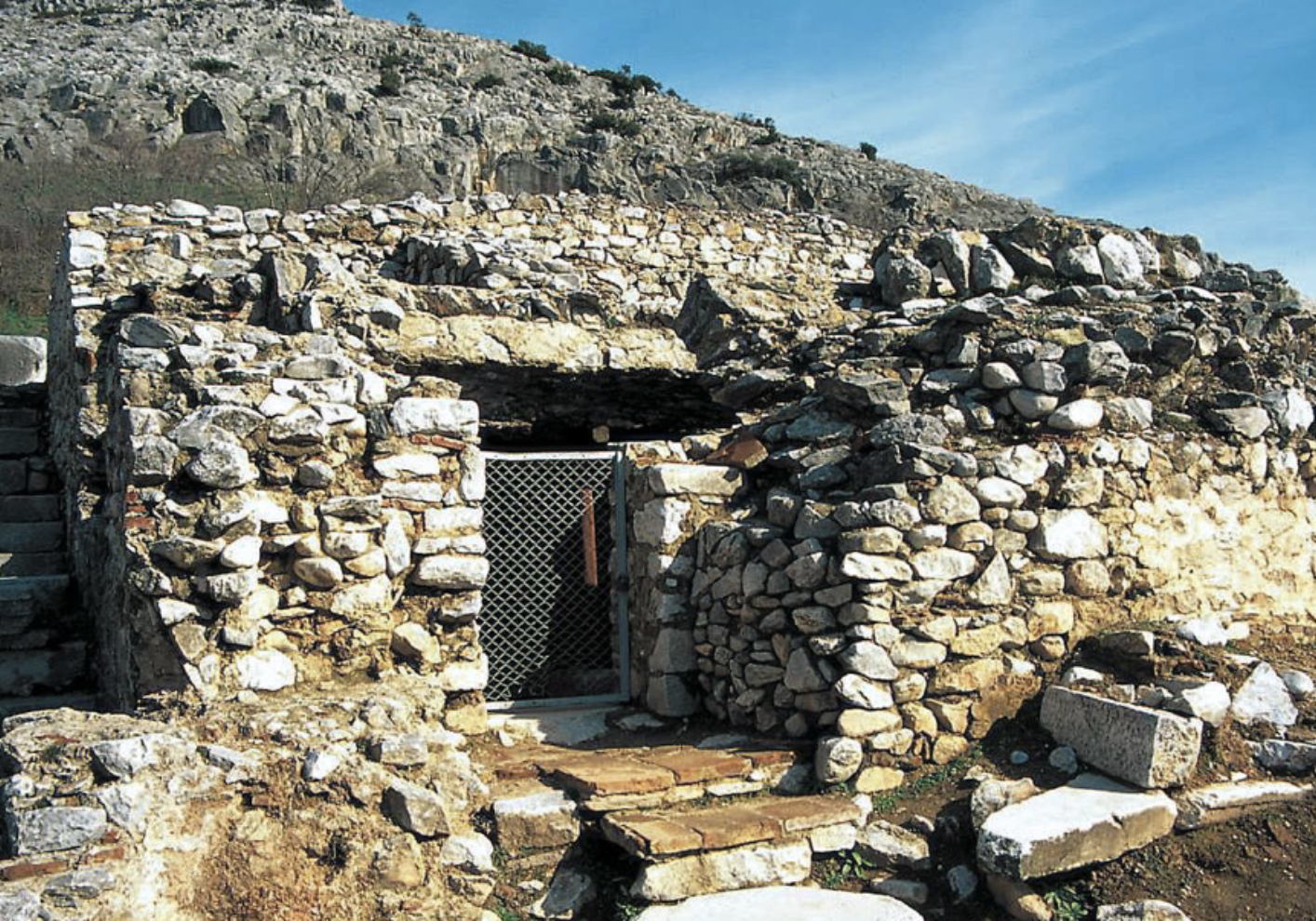Howdy, folks, and welcome to the real day one of 30 Days Through Philippians! If you haven’t yet, make sure to go read the introduction here. It will help give you an idea of what exactly you’re getting yourself into.
First things first, I told you it was coming so here it is,

I got this beautiful mug at Jeannie’s Great Maine Breakfast in Bar Harbor, Maine. I didn’t get to meet Jeannie, but she makes a mean pancake. Aside from my hometown of Beaver Dam, Kentucky, Bar Harbor is #1 on my list for Top Vacation destination in the grand US of A. Come for the Bible, stay for the vacation advice.
Now let’s get to the good stuff. Before we dive into Philippians, let’s pray.
“O Almighty God, you pour out on all who desire it the spirit of grace and of supplication: Deliver us, when we draw near to you, from coldness of heart and wanderings of mind, that with steadfast thoughts and kindled affections we may worship you in spirit and in truth; through Jesus Christ our Lord. Amen.” (A Prayer for the Spirit of Prayer from the Book of Common Prayer, or BCP, 2019)
A Bible study is only worth its salt if done in a spirit of prayer. The historical background, the original language, the themes of a particular book or letter—these are all great and can really illuminate a text. But the most important thing for understanding the Bible is a spirit of prayer. My prayer for the next 30 days is that this is never lost in our study.
The letter to the Philippians starts like this,
“Paul and Timothy, servants of Christ Jesus, to all the saints in Christ Jesus who are in Philippi, with the bishops and deacons: Grace to you and peace from God our Father and the Lord Jesus Christ.” (Philippians 1-2; NRSV)
“Paul and Timothy, servants of Christ Jesus, to all God’s holy people in Christ Jesus at Philippi, together with the overseers and deacons: Grace and peace to you from God our Father and the Lord Jesus Christ.” (Philippians 1-2; NIV)
“Paul and Timothy, servants of Christ Jesus, to all the saints in Christ Jesus who are at Philippi, with the overseers and deacons. Grace to you and peace from God our Father and the Lord Jesus Christ.” (Philippians 1-2; ESV)
I won’t always do this, but sometimes I’ll post multiple translations of the same text. If you don’t know the original language, this is a great way to get a sense of it. See how different translators, usually a team of experts, translate the same passage.
The letter is from Paul and Timothy, but the head writer is Paul. You can read more about Paul in the second half of the book of acts, but he is kind of like an honorary disciple, or apostle. He wasn’t one of Jesus’ “twelve,” but he experienced the risen Jesus and was put on a special assignment: a mission to the “Gentiles.”
Gentiles include all non-Jews, so it includes the Philippians. Paul took a few different “missionary journeys,” the second of which included a stop off in the town of Philippi. The letter “Philippians” was written to the church here (see the top of the map). The start and end point is Jerusalem (bottom right of the map). If you look carefully, you’ll see some familiar names elsewhere on this map: Epheseus, Thessalonica, and Corinth all have New Testament letters addressed to them, too.

Paul’s time in Philippi is described in Acts 16:11-40. If you’ve got a few minutes, flip over to Acts 16 and read verses 11-40.
…
As you’ll notice in Acts 16, Paul is briefly imprisoned in Philippi at this very prison:

(Hint: remember this: it will come up again later in the letter)
Paul begins his letter by calling the church here “saints.” The Greek word Paul uses is “hagios,” which more literally means “holy ones.” He writes a hello to the saints, or holy ones, but also the bishops and deacons. This means the saints are not just the ones in charge, but all members of the church.
This word applies not just to the Philippians, but to all those who are “in Christ Jesus” (v. 1). That includes us! We are God’s saints—his holy ones—if we are in Christ. Here’s what’s cool about that: Christ transcends time and space. This means the Philippians to whom Paul writes are “in Christ” in the same way we are. So are those Christians in Uganda or Scotland or Korea today. If we are united to Christ, we are united to all Christians around the world and throughout time—we are united, in Christ by the Spirit, to the Philippians and even Paul himself!
In the Apostle’s Creed, after confessing belief in the Father, Son, and Holy Spirit, the faithful confess belief in “the holy catholic church, the communion of saints.” One holy (the Greek is “hagian,” a form of the same word Paul uses in v. 1) catholic church does not refer to what we now know as the Roman Catholic Church, but to the little-c catholic, or universal, church. The next line, in fact, clarifies: all those “saints” in communion with each other.
To be in Christ is not just to be united with Christ, but to be united to other saints. Because we are connected to Christ by the Spirit, we are one.
Unfortunately, the saints are not always unified. The startling number of denominations aside, the church allows sometimes minor differences to obstruct fellowship and partnership in the gospel. In light of this, take a few minutes of silence to pray for the unity of the church.
…
After a minute or two of silence, let’s pray together,
O God the Father of our Lord Jesus Christ, our only Savior, the Prince of Peace: Give us grace to take to heart the grave dangers we are in through our many divisions. Deliver your Church from all enmity and prejudice, and everything that hinders us from godly union. As there is one Body and one Spirit, one hope of our calling, one Lord, one Faith, one Baptism, one God and Father of us all, so make us all to be of one heart and of one mind, united in one holy bond of truth and peace, of faith and love, that with one voice we may give you praise; through Jesus Christ our Lord, who lives and reigns with you and the Holy Spirit, one God in everlasting glory. Amen. (A Prayer for the Unity for All Christian People, from the BCP 2019)
Finally, Paul sends—typically of Paul’s greetings—grace and peace to the Philippians. Bible scholar Craig Keener says this is a Greek-Jew mashup of a greeting:
“The standard Greek greeting was ‘greetings’ (“chairein”—James 1:1), a Greek term related to “grace.” Jewish people greeted one another with “peace,” and Jewish letters often began, “Greetings and peace.” Paul adapts this standard greeting, a well-wishing, into a Christian prayer: “The grace and peace of God and Jesus be with you.” Placing the Father and Jesus on equal footing as providers of grace and peace elevated Jesus above the role given to any mere human in most of Judaism. “Father” was also a title for God in Judaism (usually “our Father”).
The radical message of Christianity was just that: that Jesus was on “equal footing” with the Father. He is worthy of worship and praise—just as the Father is. As we’ll see, this Jesus-centric way of seeing the world will carry through the rest of the letter.
Grace and peace, see you tomorrow.



